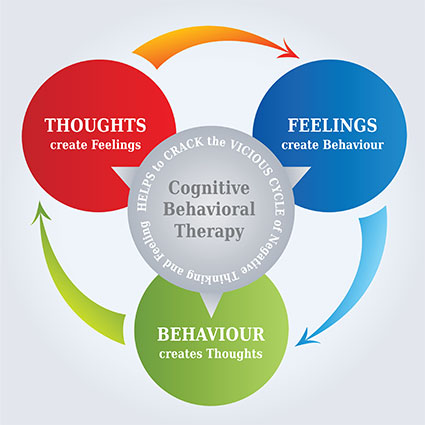6 Psychological Interventions for Treating Chronic Pain
Chronic pain causes extensive changes in the brain and central nervous system. As a result, the effects of chronic pain are often associated with heightened comorbid symptoms of depression and anxiety, as indicated by research. Furthermore, chronic pain can lead to chronic stress—affecting the body’s ability to heal, and promoting further pain. The ways chronic pain can affect the body and mind have created the opportunity for additional treatment options, such as psychological intervention.
Psychological Interventions to help treat Chronic Pain
There are a variety of psychological interventions designed to treat chronic pain that do not require a person to take prescription medications. This is good news, considering America has found itself in the midst of an opioid overdose epidemic, with 100 million Americans suffering from chronic pain.

1. Mindfulness-Based Approach
Using mindfulness to treat chronic pain involves focusing on the pain from a new perspective. When the brain reacts to chronic pain, it’s associating judgment with the pain—thinking negatively about it—focusing on how much one wishes the pain to go away. Such negative thought patterns contribute to feelings of anxiety, depression, and stress. Mindfulness looks at pain with inquisitive eyes of non-judgment. Other ways to incorporate mindfulness in chronic pain management are by practicing breathing exercises and engaging in a visualized body scan—a practice in guided imagery designed for teaching the brain to be present with each part of the body. The results of the effectiveness of guided imagery can be measured by doctors with biofeedback.
2. Cognitive-Behavioral Therapy

Negative thought patterns contributing to greater levels of depression and anxiety can be combated through CBT, as it teaches one to challenge negative thoughts, and form new ways of thinking that promote decreased levels of anxiety, depression, and pain.
3. Relaxation Techniques
Relaxation techniques help you relax both mentally and physically. This helps alleviate pain, and its comorbid symptoms. Some relaxation techniques help relax the muscles, as chronic pain contributes to muscle tension. Other relaxation techniques calm the mind—helping alleviate the mentally debilitating effects of chronic pain that exacerbate symptoms.
4. Somatic Anchoring
Somatic anchoring involves rapid self-hypnosis for combating chronic pain. This technique combines cognitive restructuring with mindfulness techniques, as well as indirect, and direct suggestions via hypnosis. This technique has been used to treat various cases of both chronic and acute pain.
5. Hypnosis
Several research studies show hypnosis to be effective in treating chronic pain. By retraining the mind through hypnosis, psychologists help reduce pain for most chronic pain sufferers. However, there is a small group of the population who are immune to the effects of hypnosis, but for those who are able to become hypnotized, this method can significantly reduce the symptoms and severity of chronic pain.
6. Acceptance and Commitment Therapy

Acceptance & Commitment Therapy (ACT) is within the family of CBT (Cognitive Behavioral Therapy) but differs in its philosophical assumptions and scientific strategies. ACT focuses on being psychologically flexible which is “the capacity to continue with or change behavior, guided by one’s goals, in a context of interacting cognitive and direct non-cognitive influences.” In other words, being able to accept the things in life that are out of one’s control, while committing to improving and enriching one’s life. This approach teaches psychological interventions for managing painful feelings and thoughts (essentially mindfulness). It also helps a person identify his/her values—motivating positive life changes. This can help to reduce the intensity and frequency of psychological experiences such as pain.
If you’re one of the 100 million Americans who are suffering from chronic pain, there are a number of treatments options available that have proven to be effective in holistically treating chronic pain; such as the psychological interventions listed above, without the use of prescription medications such as opioids.
You may also like:
Can Childhood Factors Predict Your Adult Back Pain?
The Biochemistry of Pain – What’s Going On Beneath the Surface?